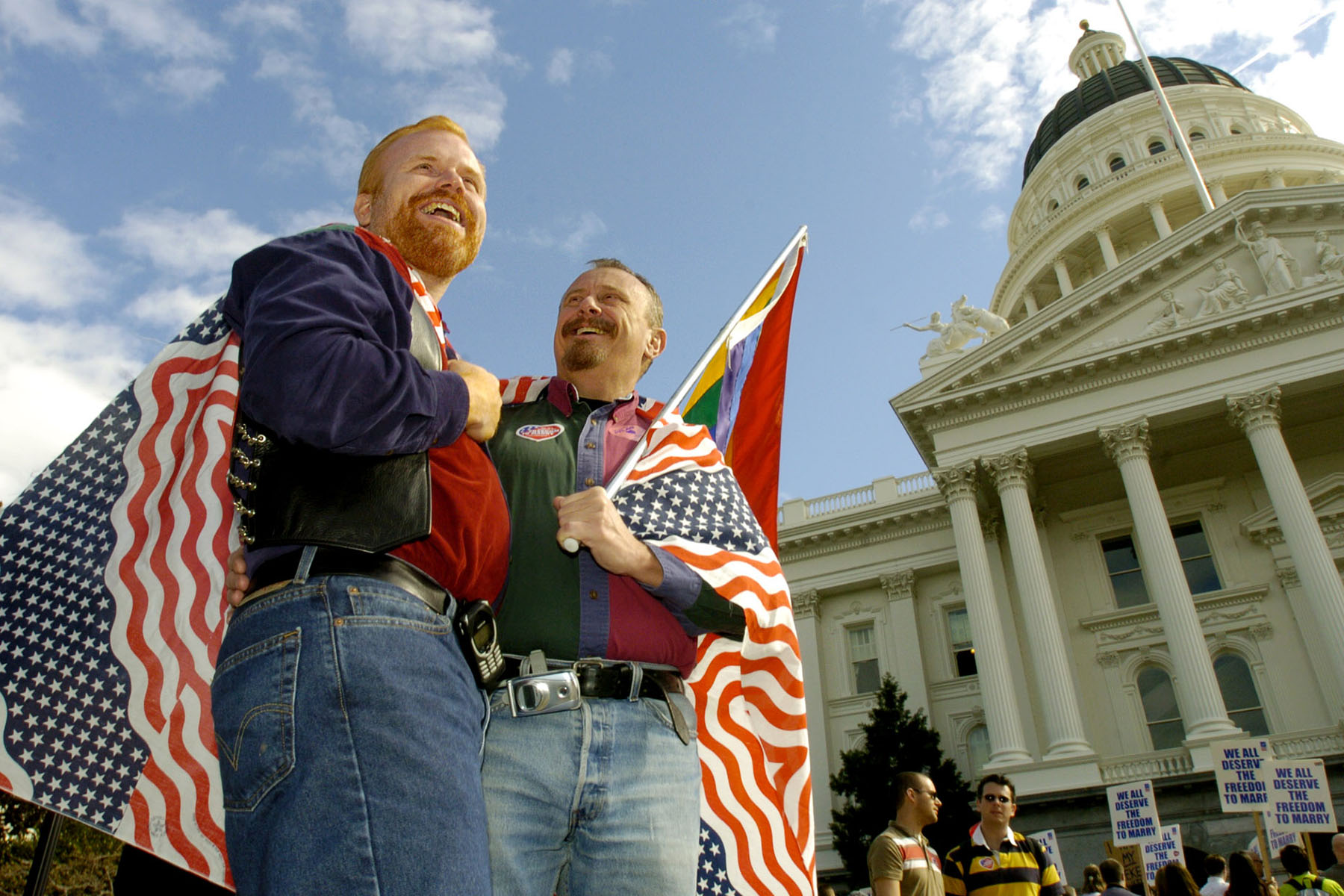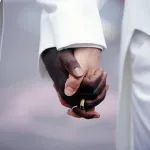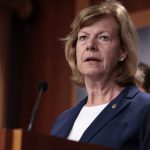It was 11 p.m. by the time Toni Broaddus picked up the phone in her office to call her partner of a decade with a last-minute plan.
“I said, ‘Look, there’s gonna be a two-hour window tomorrow where we can get married,’” Broaddus recalled. “This was my proposal.”
Her partner, Janice, thought for a moment. “Well, OK, let’s do it,” she said.
The next day, on February 12, 2004, then-San Francisco Mayor Gavin Newsom issued marriage licenses to same-sex couples, flouting state law. Broaddus and her wife would be among the first dozen in the country to wed.
This month marks 20 years since Newsom, now the state’s governor, issued those first licenses in what was dubbed the “Winter of Love.” It was a short season. Just a month later, on March 11, the California Supreme Court put a stop to the weddings. Later that year, it invalidated those marriages.
Broaddus was working as the director of programs for Equality California, the country’s largest statewide LGBTQ+ civil rights organization, that February. She remembered getting the call on February 11 that Newsom was going to start issuing the licenses the next day. Many in the movement for LGBTQ+ equality felt blindsided.
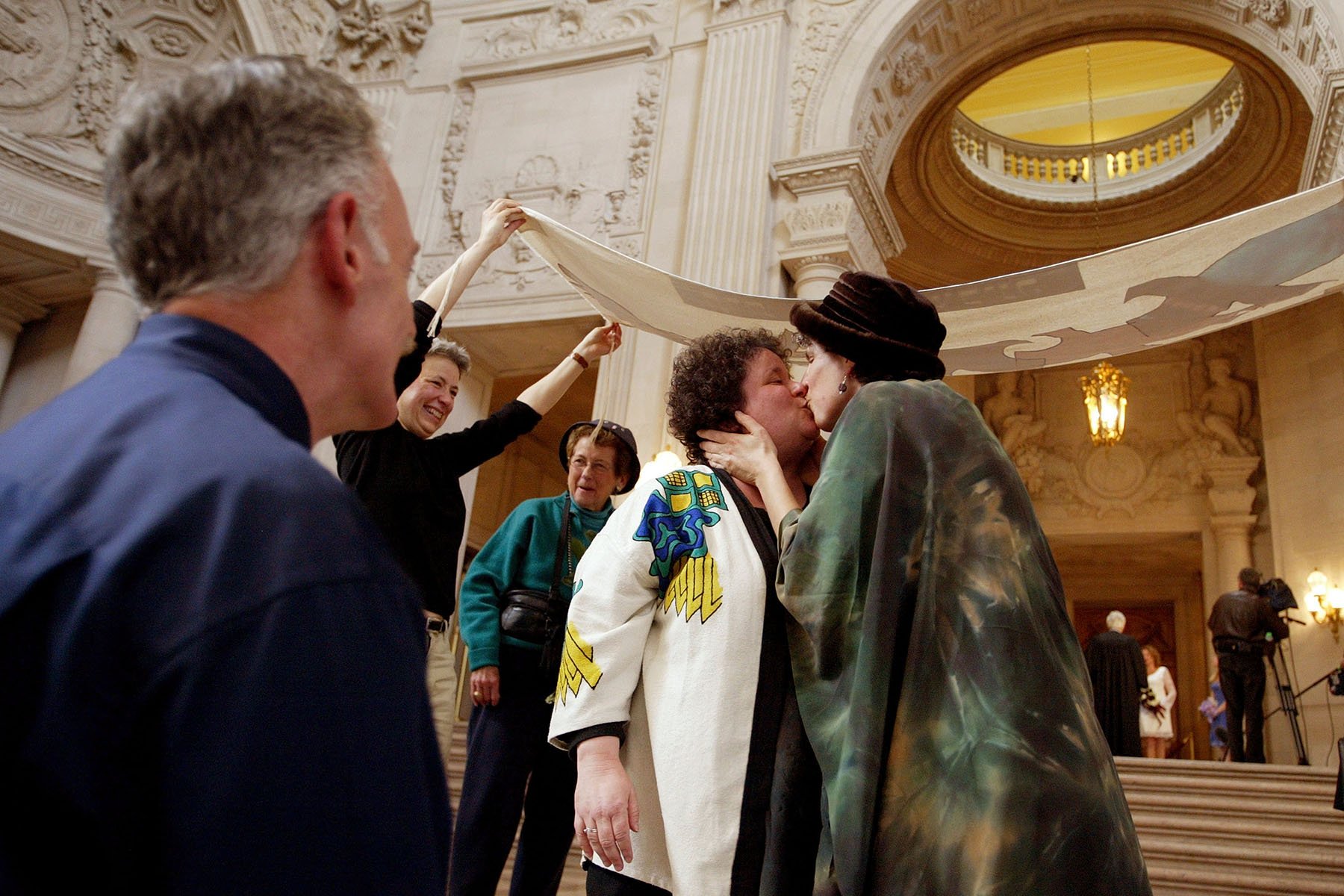
“We didn’t even have equal employment rights yet,” Broaddus said. Activists were eager to work on issues like housing protections. Marriage was not a priority. It had been just eight months since the Supreme Court struck down the last state laws that made gay sex illegal.
Shannon Minter, legal director for the National Center for Lesbian Rights, remembers that time well. Many would later criticize mainstream LGBTQ+ rights organizations for pursuing marriage equality when there were so many issues that they considered more pressing. But it was everyday people, many of whom had lost spouses, who forced the issue, Minter said. Couples were filing lawsuits demanding to be married.
“I litigated so many of those,” he said. “They were brutal. Those people really suffered grievous losses and harms … lost children. It was terrible.”
-
Read Next:
Minter said a number of his clients during that time were transgender. They were surprised to learn after a death or divorce that the state had invalidated their marriages.
Elected officials like Newsom were eager to support them. Advocates in the movement realized that they needed to get on board, literally overnight, or they would lose control of the plot.
Broaddus and her colleagues chose the first couple to wed: Phyllis Lyon and Del Martin, two women who had been together for 51 years.
“We were trying to come up with a message and a picture of a couple and queer family that was more palatable to mainstream America, because we were like, if this is going, we have to tell a story that mainstream America can hear,” said Broaddus.
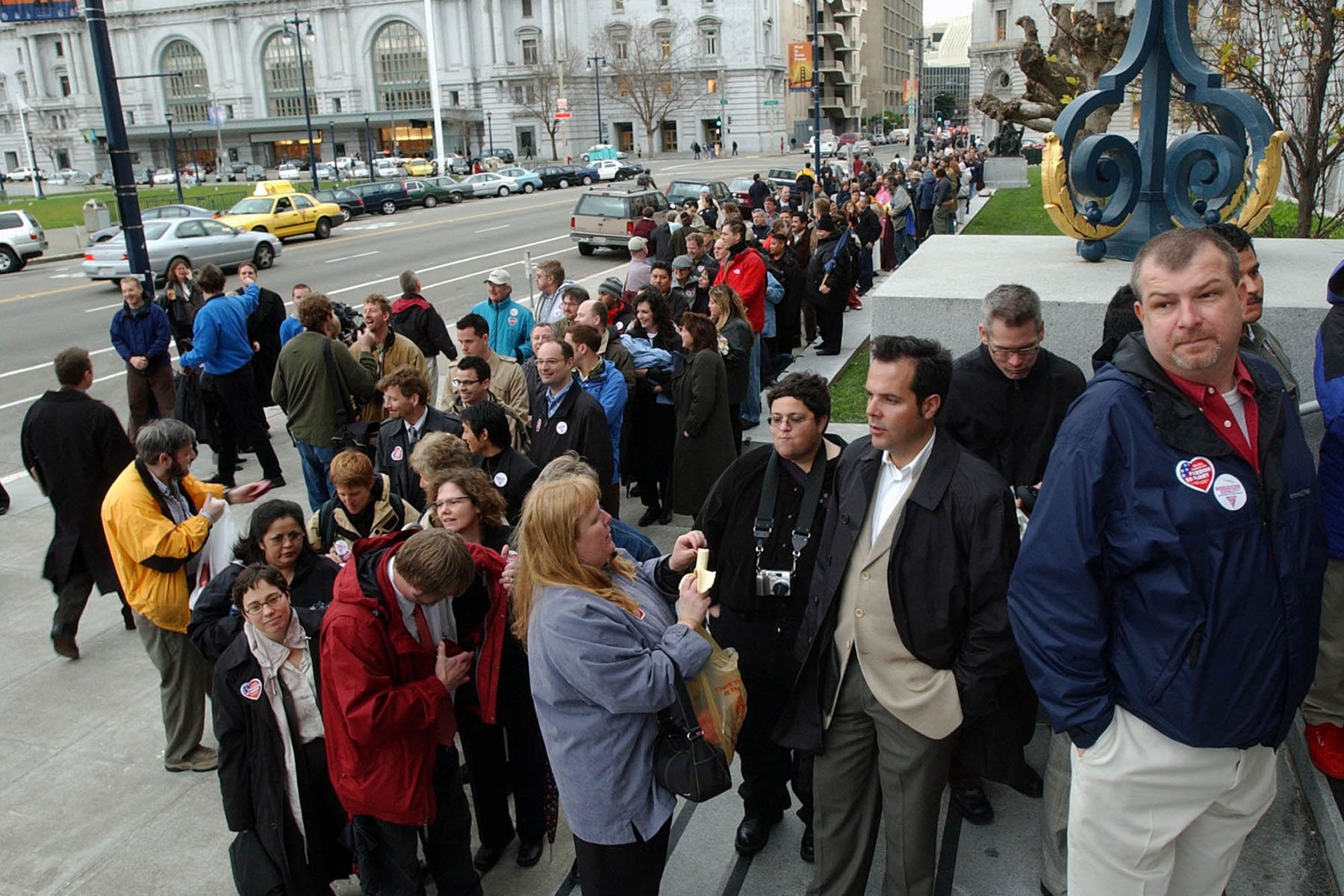
Advocates wanted people to think about their grandparents being able to marry for the first time.
February 12 was significant for a few reasons. It was Abraham Lincoln’s birthday, and it was just two days before Valentine’s Day. For that reason in 1998, LGBTQ+ advocacy group Lambda Legal had deemed the day “National Freedom to Marry Day.”
Advocates in San Francisco in 2004 were sure that the moment couples started to marry, the courts would halt the marriages. But Freedom to Marry Day was well-timed: February 12 was a national holiday.
“The courts were closed,” said Broaddus. “So we were like, ‘Oh my God, they’re not going to be able to shut this down.’ And then it just kept going.”
Newsom had opened City Hall on the holiday, and more than 4,000 LGBTQ+ couples married the following month. San Franciscans flocked to cheer them on, to deliver couples flowers and pizzas.
Broaddus knew her marriage would be invalidated. But she also knew the wedding certificate in her hands had instantly become a historical document. And she knew that no matter what happened, LGBTQ+ couples would have marriage rights eventually.
Something shifted in her.
“We were strong feminists. We were very ambivalent about marriage,” she said. “Suddenly, my relationship was recognized in a way that it never had been, and it really did feel different. It really felt profound to me in a way I had not expected.”
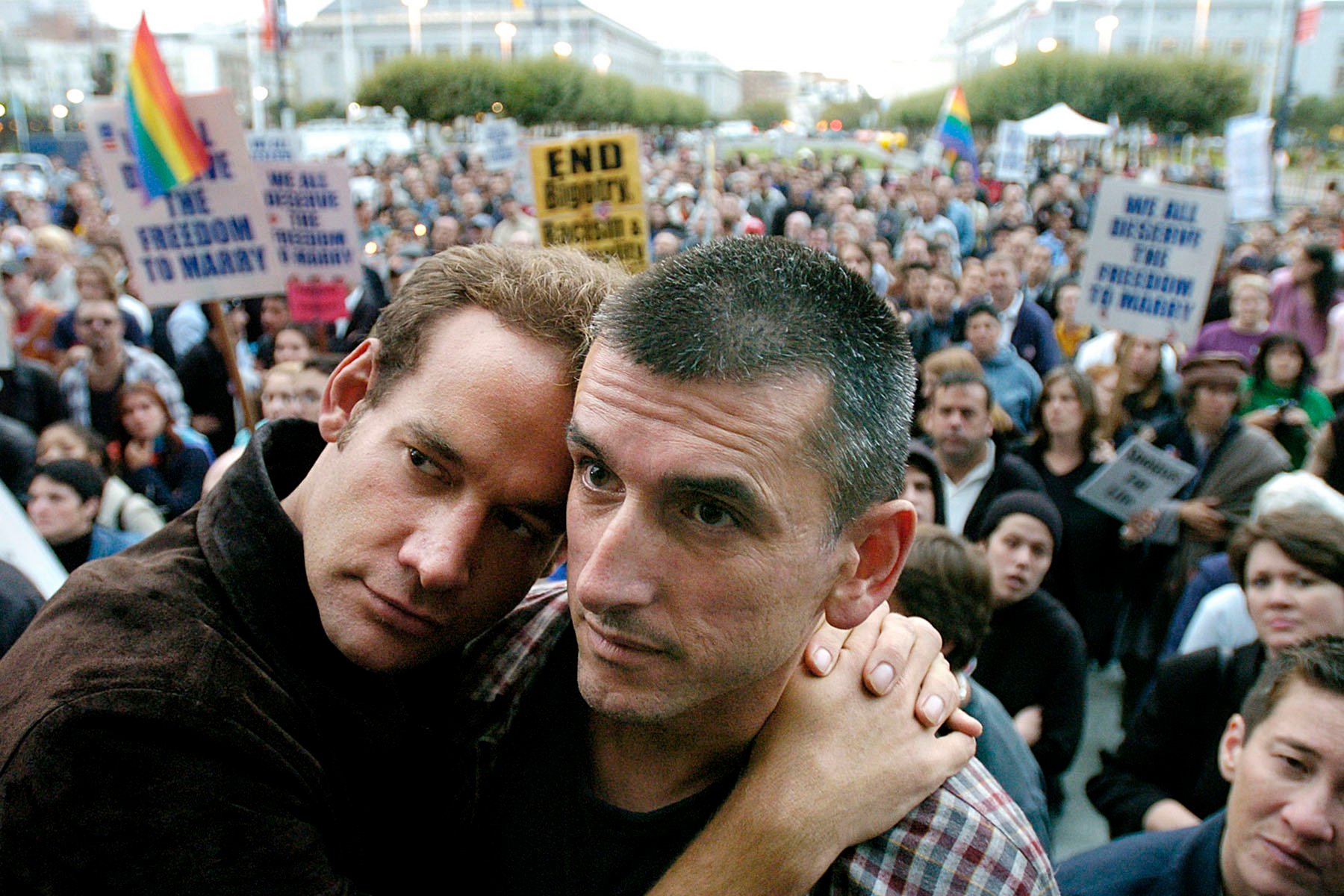
Twenty years later, Broaddus and her partner are still together. She has déjà vu watching transgender rights come under attack, particularly so-called bathroom bills.
“We used to joke about, ‘When you get to bathrooms, you know you’re on the winning track,’” she said. “That’s what happened during the civil rights movement. It happened during the women’s movement. It’s actually kind of a barometer of movements, people and their bathroom issues.”
